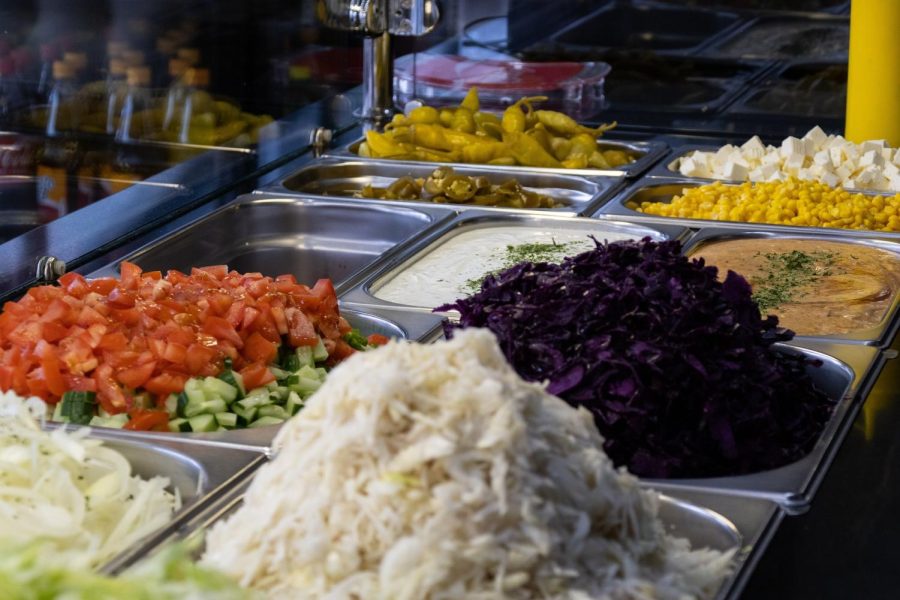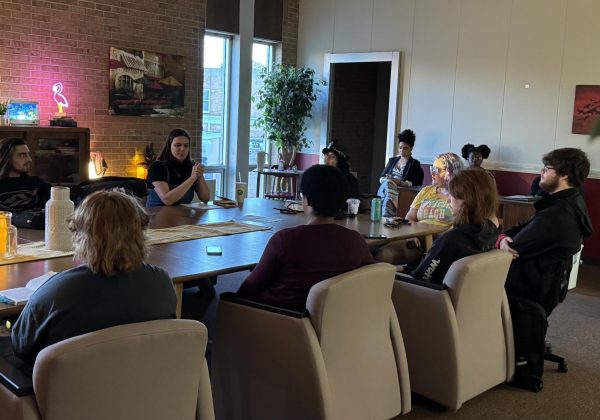Swipe Out Hunger provides meals for students
It’s undeniable that the cost of attending college keeps rising. But there’s more to the cost of college than just tuition and books. ULM’s Student Government executive council recently implemented a new project on campus called Swipe Out Hunger to end food insecurity.
Students on campus have a busy workload, and it can be difficult to figure out where their next meal will come from, especially when they are out of meal swipes for the cafeteria. Swipe Out Hunger aims to help end this problem.
This project has been in the works on campus since 2020 and was finally pushed through in recent months by two students, Elisa Castillion and David Hernandez, who serve on the Student Government’s executive council. Castillion, Student Government secretary, shared her passion for the implementation of the project.
“I don’t ever want a student to worry about not having food on their table,” Castillion said. “I have always had a passion for ending food insecurity and try to help end it in any way I can, especially if it is affecting students on campus at ULM.”
Vice President Hernandez and Secretary Castillion went through months of meetings with various areas of ULM, such as Aramark, ID services, IT services and representatives of Swipe Out Hunger. They found that the way dining services calculate how much food to prepare is by basing it on the total number of swipes on campus for each student, used or not.
“We spent months working with IT services to set up the most confidential way for students to have meal requests reviewed,” Hernandez said. “We also worked with ID services to make sure the swipe transfers could work by doing a lot of tinkering around with tests.”
This leftover food from people who do not use every food swipe they have is wasted and thrown out. This program meets Aramark halfway to help alleviate food waste while helping students battling food insecurity at the same time.
According to Feeding America, an estimated 40% of U.S. college students experience food insecurity. The impact of food insecurity on college students can be detrimental to their education. Students who deal with the stress of finding their next meal often get lower grades than their classmates and tend to withdraw before completing their degree.
But there’s still a stigma for students having a hard time affording food. Shame and embarrassment can keep students from asking for help. Students willing to seek help may not know where to begin.
Swipe Out Hunger began in 2010 at UCLA, and now the company partners with college campuses nationwide to end student hunger. Swipe Out Hunger’s statistics show that when their program is implemented, 63% of students feel less stress and anxiety about where to get their next meal, 65% of students are able to eat more regularly and 61% of students feel that their college is more supportive of students like them.
The program is completely confidential, so there is no need for students to put themselves in vulnerable positions. The swipe drive to donate is currently open on ULM’s website and will close on March 22.
The donation pile has already reached over 1,500 donations. The application is open as well and will not close until March 31. With this new implementation, ULM students have an option to help find their next meal and can save that stress for their next exam.
“The feeling of not knowing when you’ll have a next meal is a feeling nobody should ever have to feel, but unfortunately, it’s a very real thing,” Hernandez said. “If this program can help just one student, that’s one student that can have their life changed, and that’s a win in my book.”




